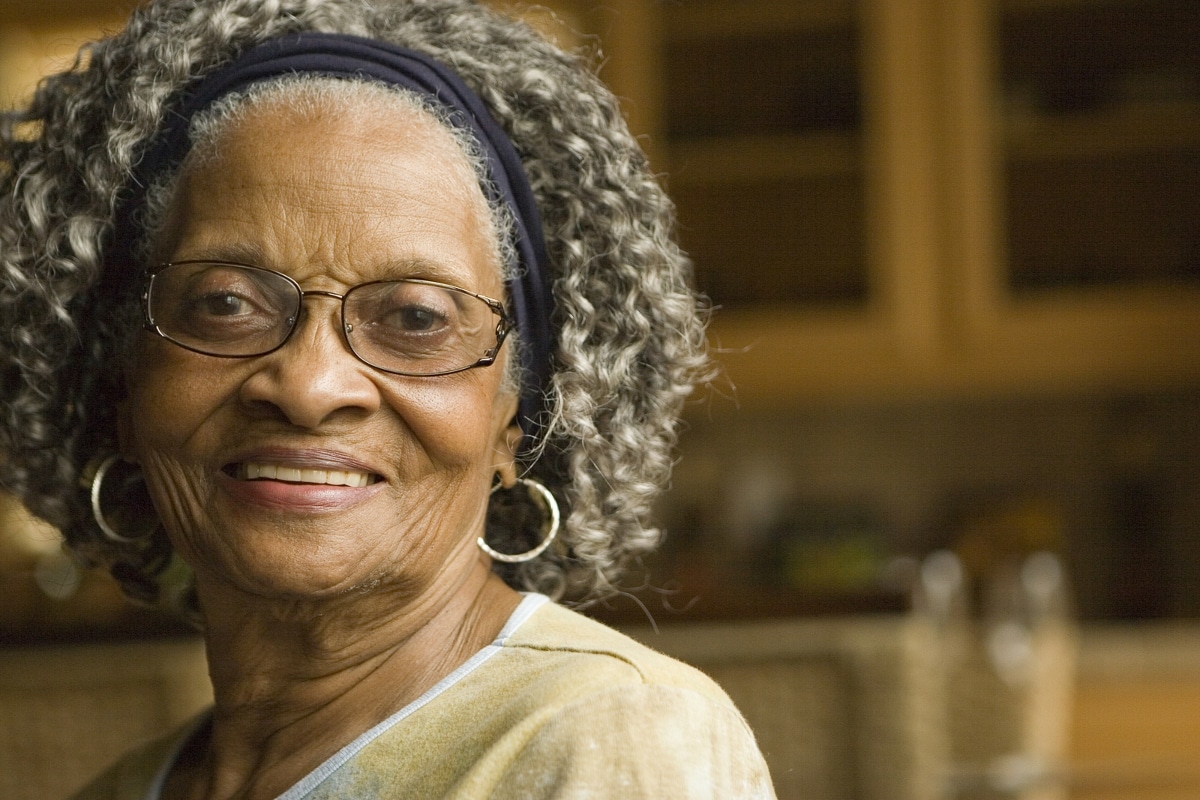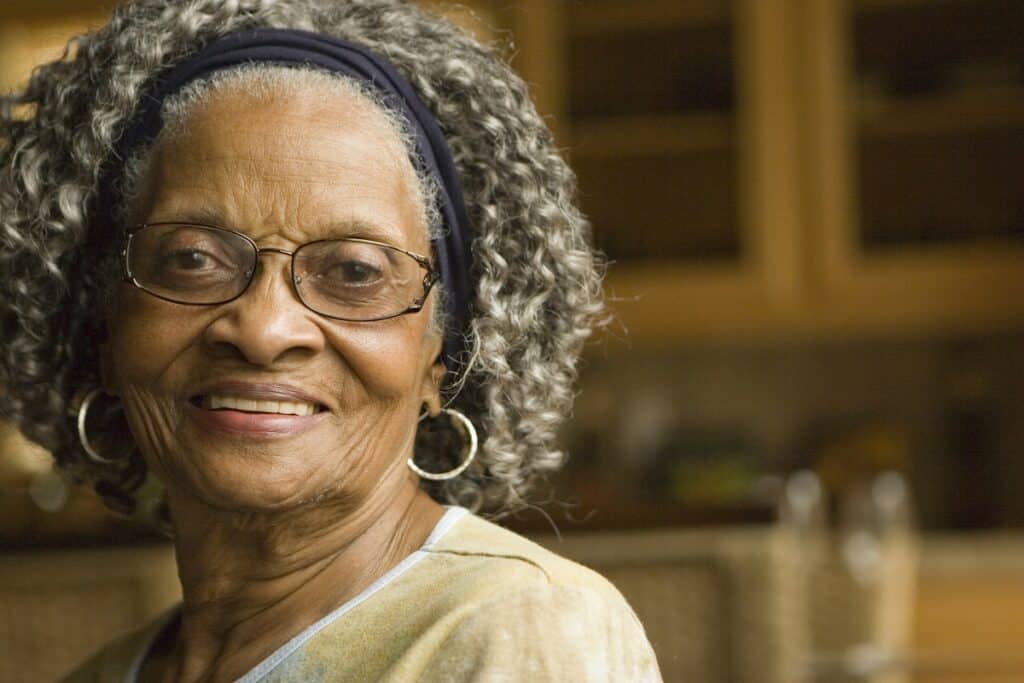
The kitchen is the heart of the home. And for seniors aging in place it’s one of the rooms where seniors are probably going to spend a lot of time. Elder care can help seniors make healthy meals, clean up, and put away their shopping each week.
But seniors still need to have an accessible kitchen so that they can cook for themselves, wash dishes, and live well in their homes. When seniors decide to age in place the kitchen is one of the first rooms that they should think about making accessible. Some things that seniors can do to make sure their kitchens are safe and accessible are:
Creating an accessible kitchen for seniors is essential to promote independence, safety, and ease of daily tasks. As people age, their physical abilities may change, making it important to adapt the kitchen environment accordingly.
Here are key considerations and modifications to make kitchens accessible for seniors:
Clear Pathways and Open Layout
Ensure there is enough space between countertops, appliances, and cabinets for easy maneuverability, especially if using mobility aids like wheelchairs or walkers. Aim for a kitchen layout with an open design, allowing seniors to move around without obstacles. Also make sure there is enough room for an elder care provider to share the kitchen.
Counter Height and Workspaces
Lower countertops to a comfortable height, typically between 28 to 34 inches, to accommodate seated or standing positions. Install pull-out or pull-down cutting boards or trays to create additional workspace when needed.
Cabinet Accessibility
Use cabinets with pull-out or pull-down shelves to reduce the need for reaching into deep cabinets. Install D-shaped or C-shaped cabinet handles for easy gripping. Consider adding lazy Susans or pull-out pantry shelves for better access to items.
Replace The Appliances
Choose appliances with easy-to-read and easy-to-use controls, including large knobs, digital displays, and clear labels. Look for side-by-side or French door refrigerators, which provide better access to both the freezer and refrigerator sections. Install front-control cooktops and wall ovens at a reachable height to avoid bending or stretching.
Sink and Faucets
Install a sink with a shallow basin to make dishwashing more manageable. Use lever-style faucets or touchless faucets that are easier to operate. Ensure there is space under the sink to accommodate a wheelchair if needed.
Lighting
Adequate lighting is crucial. Install under-cabinet lighting to illuminate workspaces. Consider motion-activated lighting for pantries and cabinets. Use LED lights that provide bright, energy-efficient illumination.
Flooring
Choose non-slip flooring materials to prevent slips and falls. Materials like textured tiles or vinyl with a matte finish can provide good traction. Ensure that flooring is even and free of loose tiles or floorboards.
Gadget Placement
Keep frequently used gadgets like a toaster or toaster oven, coffee maker, and air fryer within easy reach, and store less frequently used ones in lower cabinets or on accessible shelves. Place the microwave at counter height or install a microwave drawer for safe and convenient use.
Make Storage Accessible
Create designated storage areas for pots, pans, utensils, and dishes, making it easy to find and access what is needed. Use clear containers and labels for pantry items to identify contents easily.
Think About Safety
Install a fire extinguisher and smoke detector in the kitchen. Consider installing a heat-resistant countertop near the stove for placing hot pots and pans. A pot filler by the stove can prevent seniors from having to carry heavy pans full of water.
Add More Seating
Incorporate seating in the kitchen, such as bar stools or chairs at the island or counter, to provide rest options during meal preparation.
Floor Mats and Anti-Fatigue Mats
Place cushioned floor mats in areas where seniors stand for extended periods to reduce fatigue and discomfort.
The staff at Home Care Matters is available to talk with you and your family about all of your needs. Home Care Matters is a home care agency providing quality and affordable elder care in Dacula, GA, and the surrounding areas. Call (770) 965-4004 for more information.
We provide elder care in Braselton, Buford, Dacula, Duluth, Flowery Branch, Gainesville, Johns Creek, Lawrenceville, Oakwood, Sugar Hill, Suwanee, Barrow County, Forsyth County, Gwinnett County, Hall County, Jackson County, North Fulton County.
Valerie has the unique experience with home care as she has experienced it from both ends of the spectrum, as a caregiver and as needing care herself as a cancer survivor. Valerie says, “Taking care of someone you love is a physically, mentally and demanding labor of love.Taking care of my mom was the hardest thing I have ever done. It has given me an insight and perspective not many people understand unless you are doing it or have done it.I loved taking care of my mom.I love helping others take care of their love ones too.And now that I’ve been sick, it’s given me a whole new level of empathy and understanding for those who are sick and need help.”
Valerie’s schedule varies daily, but she loves visiting with our clients, families, caregivers, our network partners and being in the office.Says Valerie, “Every day is different, but I wake up excited about what we do, inspired by our team, clients and caregivers.I strive to be a resource to the community.I love my team and I love what we do every day. I like to think my mom would be proud.”
You can reach Valerie by email (Valerie@homecarematters.com) or in our office (770.965.4004).
- How In-Home Alzheimer’s Care Helps Your Parent Stay Safe and Comfortable - December 26, 2025
- After the Fall: How Home Care Helps Seniors Recover Safely at Home - December 19, 2025
- Supporting Seniors with Memory Challenges Through Compassionate Senior Home Care - December 12, 2025

